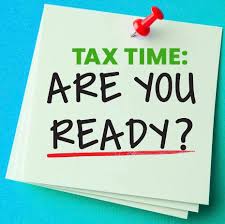
As the year comes to a close, it’s the perfect time for business owners and individuals to start organizing their financial documents and preparing for tax season. Proper preparation ensures a smoother and less stressful experience when working with your accountant. Here are some key tips to help you get ready for tax time.
- Organize Your Financial Documents
-
- Collect expense records, such as receipts, invoices, and bank statements.
- Make sure you have records for any charitable donations, medical expenses, and other potential deductions.
- Gather all income records: W-2s, 1099s, K-1s, and other relevant forms once available.
- Reconcile Your Accounts
-
- Review and reconcile your business accounts, including checking, savings, and credit cards.
- Ensure your bookkeeping is up to date by cross-referencing records with bank statements.
- Identify and address any discrepancies now to avoid delays later.
- Review Tax Deductions and Credits
-
- Consider deductible expenses like home office costs, travel, equipment, and supplies.
- For individuals, review eligible tax credits, such as the Child Tax Credit or energy-efficient home improvements.
- Work with your accountant to ensure you’re maximizing your deductions while staying compliant.
- Prepare for Estimated Taxes
-
- If you’re self-employed or have other sources of income that aren’t taxed at the source, ensure you’ve made accurate quarterly estimated payments.
- Use the year-end as an opportunity to calculate any additional payments needed to avoid penalties.
- Organize Payroll and Employee Documents
-
- Ensure all W-2s and 1099s for employees and contractors are accurate and prepared for distribution.
- Review benefits provided, such as retirement plan contributions, to determine if additional payments are needed before year-end.
- Update Personal and Business Information
-
- Verify that your personal and business information is current with the IRS, such as your mailing address or business name changes.
- Confirm that your accountant has the latest information on your financial accounts and any new income sources.
- Plan for Retirement Contributions
-
- Maximize contributions to retirement accounts like IRAs or 401(k)s.
- Consider making year-end contributions to take advantage of tax benefits.
- Review Major Financial Events
-
- Did you sell or purchase property, invest, or incur major expenses this year? Document these events, as they may impact your tax situation.
- Discuss any life changes with your accountant, such as marriage, divorce, or the birth of a child.
- Consider Tax Planning Strategies
-
- Explore deferring income or accelerating expenses if your accountant advises it.
- Make use of any remaining tax-advantaged options, such as Health Savings Account (HSA) contributions.
- Set Up a Meeting with Your Accountant
-
- Schedule an appointment early to avoid the last-minute rush.
- Bring all relevant documents and be ready to discuss your financial goals and any potential changes for the coming year.
Final Thoughts: Getting ahead on your tax preparation not only saves you time and stress but also allows us to help you identify potential savings and ensure compliance. By taking these steps now, you can focus on starting the new year with confidence, knowing that your finances are in order.
Pro Tip: We offer checklists to help you gather necessary documents. Let’s make this tax season your smoothest yet! If you need help organizing or have questions about your financial situation, don’t hesitate to contact us.
***
Eric S. Degen, CPA Titan Accountancy, LLC
discover the advantages of excellence
